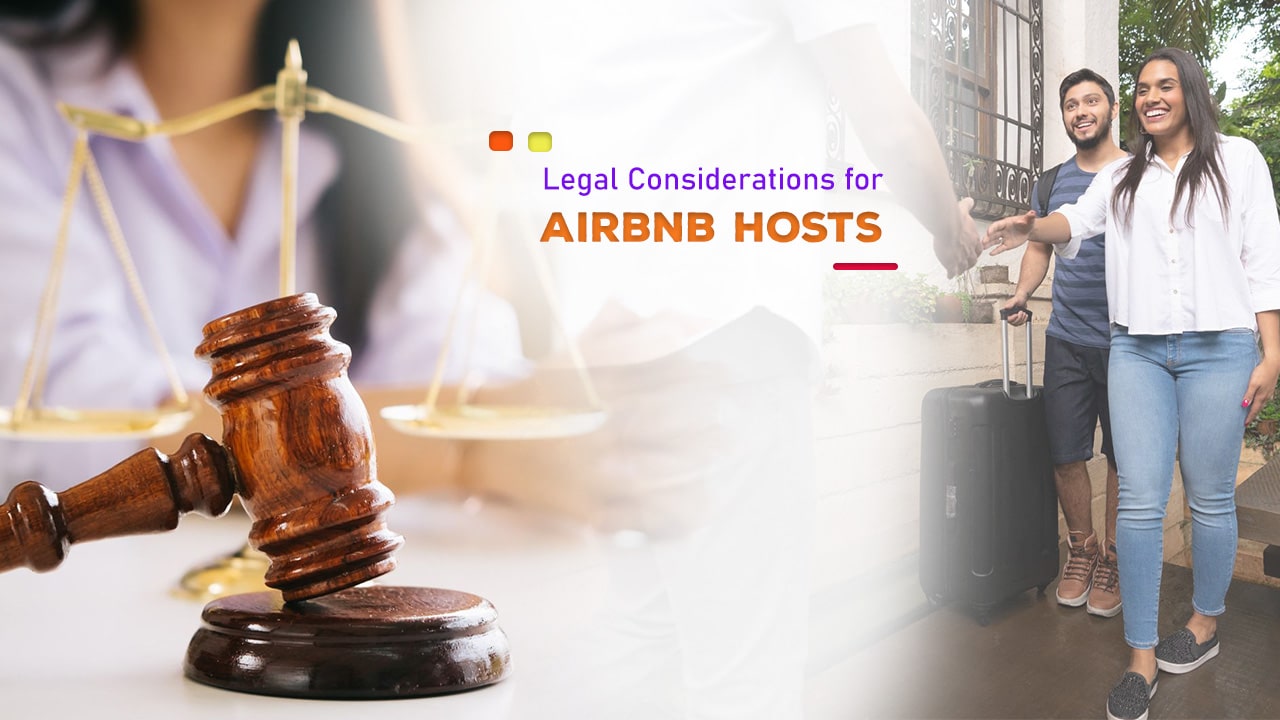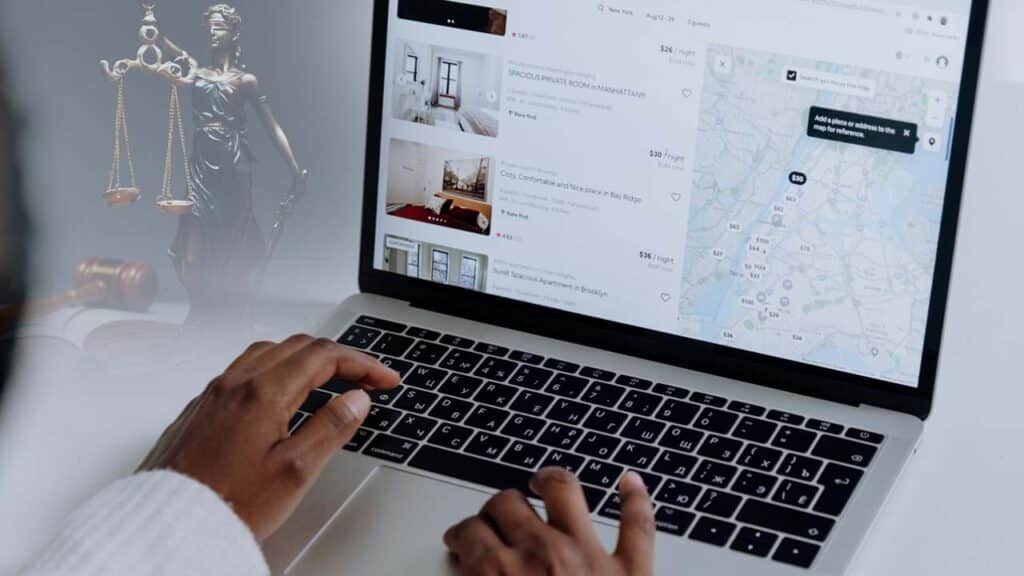As the short-term rental market continues to grow, hosting on Airbnb has become a popular way to earn extra income or even build a full-time business.
However, becoming an Airbnb host comes with legal responsibilities that many new hosts may overlook.
From understanding local zoning laws to navigating tax obligations and insurance coverage, there’s more to hosting than simply listing your property.
Whether you’re renting out a spare room, a vacation home, or multiple properties, it’s crucial to ensure that your Airbnb hosting activities comply with all legal requirements.
Failure to do so could result in hefty fines, penalties, or even legal action that could threaten your business and financial stability.
This guide outlines 8 essential legal considerations for Airbnb hosts to help you protect your property, comply with regulations, and run a successful short-term rental operation.
1. Local Laws and Zoning Regulations
One of the first and most critical legal steps for any Airbnb host is understanding the local laws and zoning regulations that govern short-term rentals in your area.
These regulations can vary widely depending on the city, state, or country you’re in, and failure to comply with them can result in fines, penalties, or even being banned from hosting.
Why it’s important:
Short-term rental laws exist to protect the interests of local residents and communities, but they can be complex and change frequently.
Some cities impose restrictions on the number of days you can rent your property, while others require special permits or licenses.
In some cases, short-term rentals may be outright banned in certain residential zones to prevent disturbances or overcrowding in neighborhoods.
What to consider:
Before listing your property on Airbnb, visit your city or county’s website or contact the local planning department to find out whether short-term rentals are allowed and what specific regulations apply.
You may need to obtain a business license, register your property as a short-term rental, or comply with health and safety regulations.
Be sure to check if there are any restrictions on how many nights per year you can rent your property or limits on the number of guests allowed.
Additionally, some cities have introduced “host caps,” where only primary residents can list properties to prevent housing shortages for long-term residents.
Tips for compliance:
Regularly check for updates on local regulations, as rules may change over time.
It’s also a good idea to keep detailed records of your rental activities, including booking dates and guest numbers, in case you need to prove compliance with local laws.
2. Homeowners Association (HOA) Rules
It’s crucial to review the specific regulations governing short-term rentals if you reside in a community under the control of a homeowners association (HOA).
Many HOAs have regulations in place to maintain the character of the neighborhood and ensure that homes are used in a way that benefits the entire community.
Violating these rules can result in fines or even legal action from your HOA.
Why it’s important:
HOAs often have strict guidelines about the use of properties within their jurisdiction, including limits or outright bans on short-term rentals.
They may argue that having frequent short-term guests increases noise, parking issues, or other disturbances that can negatively impact the quality of life for permanent residents.
If your HOA finds out that you’re hosting short-term guests in violation of their rules, they may impose penalties, which could include fines or legal action to force you to stop renting your property on Airbnb.
What to consider:
Reach out to your HOA to ask if short-term rentals are allowed and what the specific regulations are.
Even if the HOA permits short-term rentals, they may have restrictions regarding the number of rental days allowed per year, guest behavior, and parking limitations.
Some HOAs may require you to get approval from the board before you can start renting your property.
It’s important to keep in mind that these rules can vary significantly between communities, so what works in one HOA may not work in another.
Tips for compliance:
If your HOA allows short-term rentals, follow their rules closely and keep open communication with your neighbors to prevent any issues.
Some hosts choose to notify their neighbors when they have guests staying to ensure transparency and foster goodwill.
This proactive communication can help prevent complaints and maintain a positive relationship with both the HOA and your neighbors.
3. Landlord and Lease Agreements
If you’re a tenant and want to list your rental property on Airbnb, it’s crucial to check your lease agreement and get your landlord’s permission before doing so.
Many lease agreements specifically prohibit subletting or short-term rentals, and violating these terms can lead to eviction or legal disputes.
Why it’s important:
You must abide by the terms of your lease agreement as a tenant because most leases contain provisions that forbid subletting or renting the property without the landlord’s permission.
Hosting on Airbnb without permission can lead to eviction, lawsuits, and financial liability for damages.
Additionally, some landlords might be concerned about the potential damage that frequent short-term guests could do to the property.
What to consider:
Review your lease agreement carefully to see if there are any clauses related to subletting or short-term rentals.
Even if there isn’t a specific clause addressing Airbnb, it’s still essential to ask your landlord for permission.
Some landlords may allow short-term rentals if certain conditions are met, such as requiring additional security deposits, limiting the number of guests, or sharing a portion of the rental income.
Tips for compliance:
If your landlord agrees to let you host on Airbnb, make sure to get their consent in writing.
This will protect you in case any disputes arise later on. You should also discuss any potential changes to your insurance coverage or security measures that may be necessary to protect the property and your guests.
4. Insurance Coverage
Having the right insurance coverage is one of the most critical legal considerations for Airbnb hosts.
While Airbnb offers some level of protection through its Host Guarantee and Host Protection Insurance, these programs may not cover all situations, leaving hosts exposed to liability or property damage.
Why it’s important:
Standard homeowners or renters insurance policies often do not cover claims related to short-term rentals.
For example, if a guest is injured on your property or causes damage during their stay, your insurance may not pay for repairs or legal fees.
Without proper coverage, you could be left financially responsible for any damages, injuries, or lawsuits that arise from your hosting activities.
What to consider:
Airbnb provides host protection insurance, which offers up to $1 million in liability coverage for injuries or property damage caused by guests.
However, this policy has limitations and may not cover all scenarios, such as intentional damage or certain types of liability claims.
Many hosts choose to purchase additional short-term rental insurance that provides more comprehensive coverage, including protection against guest-caused damage, theft, and loss of rental income due to cancellations.
Tips for compliance:
Contact your insurance provider to discuss your short-term rental activities and ensure that your policy covers Airbnb hosting.
Some companies offer specialized short-term rental insurance policies that are specifically designed for Airbnb hosts.
It’s also a good idea to document the condition of your property before and after each guest’s stay, so you have evidence in case of any disputes.
5. Tax Obligations
As an Airbnb host, you’re considered self-employed, and any income you earn from renting your property is subject to taxes.
This means you’ll need to report your Airbnb earnings to the IRS and possibly pay state and local taxes as well.
Additionally, some areas require Airbnb hosts to collect and remit occupancy taxes, similar to the taxes charged by hotels.
Why it’s important:
Failing to report your Airbnb income or pay the required taxes can lead to fines, penalties, and audits from the IRS.
Additionally, many cities and states require short-term rental hosts to collect and remit occupancy taxes, which are taxes levied on guests in a similar manner to hotel taxes.
Airbnb may collect and remit these taxes on your behalf in some locations, but in others, it’s your responsibility to handle this.
What to consider:
Keep detailed records of your rental income, expenses, and occupancy rates throughout the year to make tax filing easier.
You may also be eligible for deductions on certain expenses related to your hosting activities, such as cleaning fees, repairs, utilities, and home improvements.
It’s important to understand both federal and local tax obligations and consult with a tax professional if needed.
Tips for compliance:
Many hosts find it helpful to use accounting software to track their Airbnb income and expenses, making it easier to prepare for tax season.
Be sure to check whether Airbnb
collects and remits occupancy taxes in your location; if not, you’ll need to register with your local tax authority to pay these taxes yourself.
6. Guest Screening and House Rules
Guest screening and creating clear house rules are essential steps to ensure that your Airbnb experience goes smoothly.
As an Airbnb host, you’re allowing strangers into your home or property, so it’s crucial to take precautions to protect your space and prevent any issues.
Why it’s important:
While most guests are respectful and follow the rules, there’s always a risk that someone could damage your property, disturb neighbors, or violate your house rules.
By carefully screening guests and setting clear expectations upfront, you can minimize the risk of problems and protect your property from potential damage.
What to consider:
Airbnb provides a range of guest screening tools, including requiring verified identification, checking reviews from previous hosts, and setting criteria for who can book your property.
In addition, you should create detailed house rules that cover topics like noise levels, smoking, pets, parties, and check-in/check-out procedures.
Make sure guests understand your expectations before they book, and be prepared to enforce your rules if necessary.
Tips for compliance:
Use Airbnb’s messaging system to communicate with guests before their stay, allowing you to clarify any questions or concerns they may have.
Additionally, consider using a security deposit or installing security cameras (in common areas only) to deter potential issues and protect your property.
7. Safety and Accessibility Compliance
As an Airbnb host, you’re responsible for ensuring that your property is safe for guests and complies with any health, safety, and accessibility regulations in your area.
This includes providing essential safety features like smoke detectors, carbon monoxide detectors, fire extinguishers, and first aid kits.
Why it’s important:
If a guest is injured on your property due to unsafe conditions, you could be held liable for their injuries.
Additionally, some guests may have specific needs related to accessibility, and it’s important to ensure that your property is welcoming to all guests, including those with disabilities.
Failing to comply with safety and accessibility requirements could result in legal claims, fines, or being removed from Airbnb’s platform.
What to consider:
Check your local building codes and short-term rental regulations to ensure that your property meets all safety and accessibility requirements.
This may include installing fire alarms, ensuring that all windows and doors are secure, and providing a clear evacuation plan.
If your property is advertised as accessible, make sure it meets the necessary standards, such as having ramps, wide doorways, and accessible bathrooms.
Tips for compliance:
Conduct regular safety inspections of your property to ensure that all equipment is functioning properly and that any potential hazards are addressed.
Consider adding additional safety features like keypad entry systems or security cameras (for common areas) to increase security for both you and your guests.
8. Handling Legal Disputes
Even with the best precautions in place, legal disputes with guests may arise. Whether it’s a disagreement over the cleanliness of your property, damage claims, or a refund request, it’s essential to know how to handle these situations professionally and legally.
Why it’s important:
Handling disputes promptly and professionally can help prevent a minor issue from escalating into a legal battle.
In some cases, guests may attempt to sue for damages, injuries, or breaches of contract, and being unprepared could leave you vulnerable to costly legal consequences.
What to consider:
Airbnb offers a dispute resolution process that can help hosts and guests resolve issues amicably.
However, if a resolution cannot be reached through Airbnb’s system, you may need to take additional steps to protect yourself.
It’s essential to keep thorough records of all communications with guests, including any house rule violations, property damage, or complaints.
Tips for compliance:
If you encounter a legal dispute that cannot be resolved through Airbnb’s internal system, it may be necessary to consult a lawyer who specializes in short-term rental laws.
They can help you navigate the legal process, assess your options, and protect your interests in court if needed.
Additionally, having proper insurance coverage in place can help cover legal costs if a guest files a lawsuit.
Final Thoughts
Hosting on Airbnb offers exciting opportunities to generate income, meet new people, and share your space with travelers from around the world.
However, it’s essential to understand and comply with the legal requirements that come with short-term rentals.
From local regulations and insurance coverage to tax obligations and guest screening, these 8 legal considerations for Airbnb hosts are crucial to ensuring that your hosting experience is successful and legally sound.
By staying informed and taking proactive steps, you’ll be better equipped to avoid legal pitfalls and protect your property while providing a safe and enjoyable experience for your guests.






































